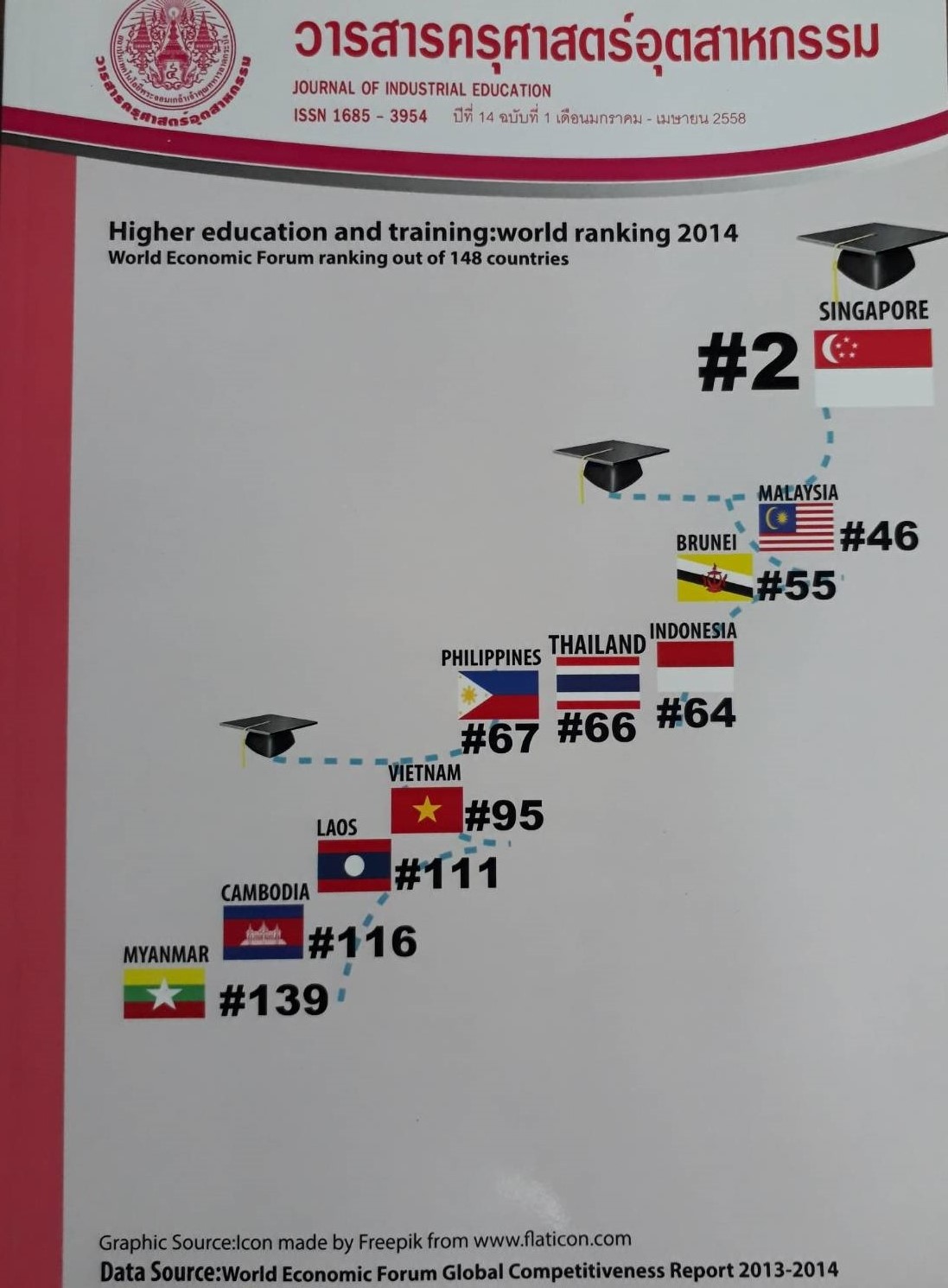Good Management and Learning Routes to Enhance the Career Capacity and Better Life of the Community Enterprises in Samut Sakhon Province in Progression of their Community Economy Using the Philosophy of Sufficiency Economy
Keywords:
Good Management, Learning, Career Ability, Well Being, Sufficiency Economy PhilosophyAbstract
This research was comprised of 4 main objectives. First, the study aimed at examining the status of good practice management, production, sales promotion and career capability of the community enterprises. Using the purposive random sampling, the data were from an interview with each leader of 131 community enterprises in Samut Sakhon province, officially registered with Department of Agricultural Extension, Ministry of Agriculture and Cooperatives. Second, it focused on an investigation of health behavior which reflected a good life quality from 296 representatives of the community enterprises, using the stratified random sampling. Third, it was also to study a customer behavior of Thai and foreign visitors who purchased the community products. The data were obtained from 368 travellers using the accidental sampling. Finally, the emphasis of the study was to investigate solutions in promoting learning activities in order to enhance a career capability of the community enterprises based on the efficiency economy philosophy. The research findings were then reflected to the public stage at which it allowed criticism from community entrepreneurs and shared assistance in drawing learning guidelines together. Likewise, it included a good production and sales management in order to promote a career capability and good life of the community enterprises in succession of their economy according to the efficiency economy philosophy. Research techniques and instruments applied in this study included 3 sets of questionnaires (reliability value at .89, .81 and .88), in-depth interview forms and public hearing. The data from questionnaires were analyzed by frequency, percentage, mean and standard deviation, whereas a content analysis was used to analyse the qualitative data.
The findings revealed that there were only 76 equal 58 percent of the total community enterprises which were operated in a cooperative status as described in the Community Act. The management status was found at the satisfactory level, whilst a career capability and good life were found at the satisfactory level too with mean= 4.05 and 3.71, respectively. Solutions in promoting learning activities and a good management to enhance a career capability and good life of the community enterprises based on the efficiency economy philosophy were varied. On the first hand, the government should support the community enterprises with proper knowledge and learning activities leading to a good production and marketing management suitable for their products. To do this, educational institutions should be given a role to promote learning activities, including research and development process to boost their product quality. On the other hand, relevant government sectors should carry out the community enterprises' concerns on a basis of integrated support to avoid duplication. In the meanwhile, Community enterprise organizations should create a cooperative network to strengthen a mutual support where is needed. A application of neutral guideline to be used in the community management focuses on cooperation, participation and fair trade.
References
[2] เสรี พงศ์พิศ. 2548ก. วิสาหกิจชุมชน ทิศทางของการพัฒนา. กรุงเทพฯ: พลังปัญญา.
[3] ขวัญใจ สีสังข์. 2545. ความรู้เบื้องต้นเกี่ยวกับวิสาหกิจชุมชนและการให้สินเชื่อวิสาหกิจชุมชน. กรุงเทพฯ: ธนาคารเพื่อการเกษตรและสหกรณ์.
[4] Galloway, S. and Dunlop, S. 2010. Social Creativity: Re-Qualifying the Creative Economy. International Journal of Cultural Policy. 16(3), pp.17-31.
[5] อรุณี เวียงแสง. 2551. ตลาดทางเลือก:"ตลาดที่มากกว่าการซื้อขาย." ในโครงการการจัดการตลาดผักปลอดสารพิษที่เหมาะสมและเป็นธรรมในช่วงปรับเปลี่ยนการผลิต เครือข่ายเกษตรกรรมทางเลือก จังหวัดแม่ฮ่องสอน. ค้นเมื่อ 16 มกราคม 2554 จาก www.vijai-mhs.org/SA1_50.html.
[6] ชมชวน บุญระหงษ์. 2543. ระบบตลาดทางเลือกที่เหมาะสมสำหรับสินค้าเกษตรกรรมยั่งยืน. กรุงเทพฯ: สำนักงานกองทุนสนับสนุนการวิจัย (สกว.) ฝ่ายวิจัยเพื่อท้องถิ่น.
[7] สุรชัย โฆษิตบวรชัย. 2553. สร้างสรรค์ คุณค่า "Value Creation" บทสรุปของความสำเร็จยุคใหม่ จากแนวคิดสู่การปฏิบัติ. ค้นเมื่อ 15 มิถุนายน 2554 จาก www.okmd.or.th.
[8] เสรี พงศ์พิศ. 2548ข. ชุมชนเรียนรู้อยู่เย็นเป็นสุข: บทเรียนจากหมูบ้าน. กรุงเทพฯ: พลังปัญญา.
[9] พัชราวดี ศรีบุญเรือง. 2556. การใช้สื่อสังคมออนไลน์และอินเทอร์เน็ตมือถือของวิสาหกิจชุมชนในกรุงเทพมหานคร. วารสารครุศาสตร์อุตสาหกรรม, 12(3), น.8-15.
Downloads
Published
How to Cite
Issue
Section
License
"The opinions and contents including the words in papers are responsibility by the authors."
"ข้อคิดเห็น เนื้อหา รวมทั้งการใช้ภาษาในบทความถือเป็นความรับผิดชอบของผู้เขียน"



